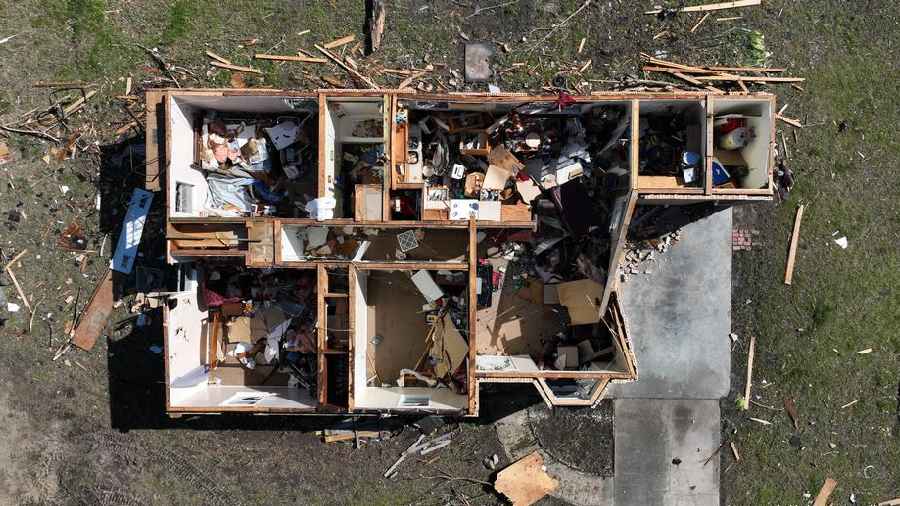US President Joe Biden approved on Sunday an emergency declaration for Mississippi, after the state was hit by devastating storms and a tornado which killed at least 25 people and left much destruction.
One person was killed in Alabama.
The declaration involves federal aid to supplement state, tribal and local recovery efforts in the affected areas, according to a White House statement.
What does the declaration mean?
The declaration offers funding for individuals affected by the tornado.
The funding is available for those impacted in the counties of Carroll, Humphreys, Monroe, and Sharkey. Authorities were also assessing other areas and counties, with the possibility of extending aid further.
Aid is offered in the form of programs meant to help individuals and business owners recover from the devastation. Programs include grants for temporary housing and home repairs and low-cost loans to cover uninsured property losses.
Mississippi Governor Tate Reeves issued a state of emergency. He pledged to help rebuild the devastated state as he inspected the damage.
Over six shelters were opened in the state to house those displaced by the tornado.
Recovery efforts underway
Search and recovery crews continued on Sunday to dig through the debris, with the tornado leaving behind a trail of flattened and destroyed homes, buildings and offices, and displacing hundreds of people.
The National Weather Service warned that more severe weather could still be on the way on Sunday. Eastern Louisiana, south central Mississippi and south central Alabama could be hit with high winds, large hail and possible tornadoes, the service cautioned.
"Houses are gone, houses stacked on top of houses with vehicles on top of that," Rodney Porter, who lives near the severely battered town of Rolling Fork, told the AP news agency. "How anybody survived is unknown by me."
Preliminary information on the storm suggested the tornado was on the ground for over an hour, traversing at least 170 miles (274 kilometers), Lance Perrilloux, a meteorologist with the National Weather Service, told the AP. He described it as "very, very rare."











